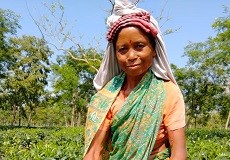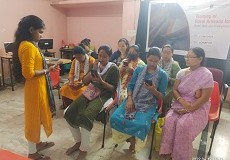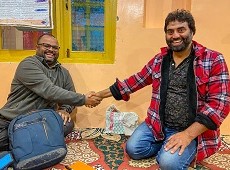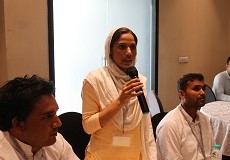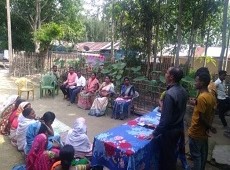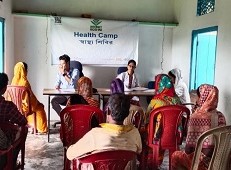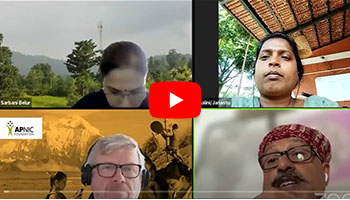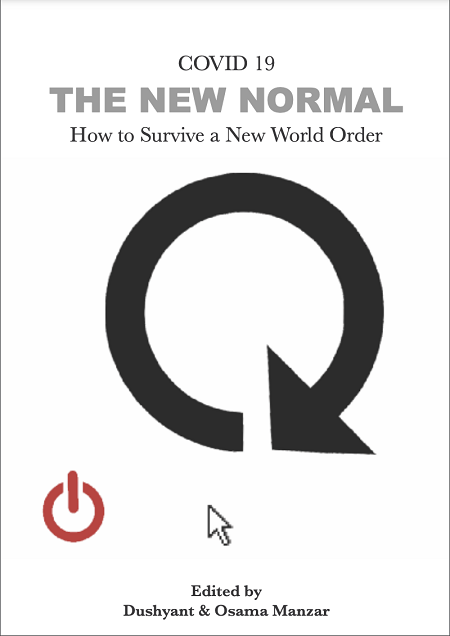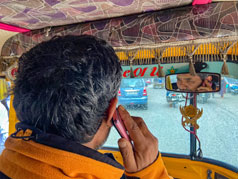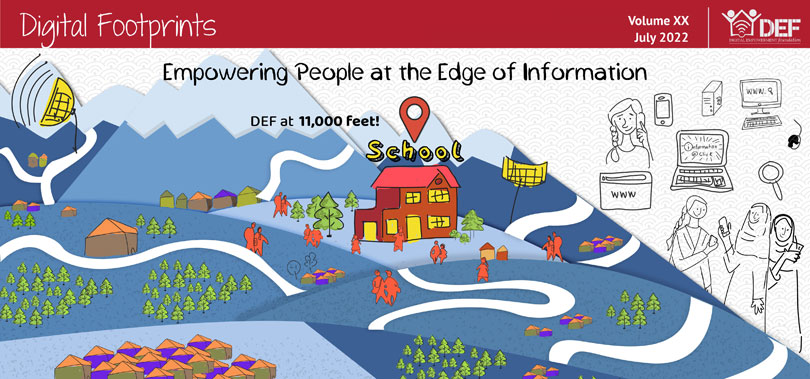

Digital Empowerment Foundation has been working towards connecting the unconnected and bridging the digital divide for the last 20 years and this endeavour has taken us to over 135 districts of the country across 24 states. At the start of the pandemic we had a cadre of about 1,000 SoochnaPreneurs who worked day in and day out to provide access to information, health, finance, livelihood and government entitlements through digital means. Seeing the success of our SoochnaPreneur model, we knew that just maintaining this cadre wasn’t going to be enough; we needed to expand and reach out to more communities who now more than ever before were facing the brunt of the digital divide. Read More


The notion of ‘empowerment’ has been understood in varied forms and more often than not contextually evaluated. Understanding within its wider connotation, policy analysts and scholarly debates compounded the idea of empowerment as an expansion of civil, social, political and a robust citizenship. Consequentially, the processes’ underpinning the guarantee of an empowered citizenry is vested within the Constitutional frameworks of rights and responsibilities. Taking cognizance of the society’s weaker sections, many countries worldwide have embarked upon sanctioning special responsibility towards the deprived, in order to ensure a level playing field, often backed by strong laws. Read More


Assam has been providing India and the rest of the world with high quality tea for the last 150 years now. Any visitor going to Assam will experience the aroma and savour the unique malty flavour of Assam tea. Among the 140 tea estates of Barak Valley, Rosekandy Tea Estate has made a place of distinction for its good management, healthy relationship with labourers and also for its social obligation. The estate has been known for the production of best quality green leaf tea selling 800,000 kg annually in the valley market. In fact, it is a dominant brand and quite popular across the country. Assam tea is harvested twice a year and the first flush is picked around the end of March. Read More
“What is this?” I asked, looking at a feature phone hanging next to the man sitting in a meat shop. He said “it’s a radio; earlier this was my phone but as you know, lately these phones are of no use, so now it is my radio.” India is a country known for jugaad; reusing, recycling, refurbishing and recontextualising. I remember a conversation I had a long time back with Stanislav, a traveller who had driven all the way from Czech Republic to India in his caravan. The unique thing about his caravan was that it would run on used vegetable oil; he would approach any big restaurant, in most cases McDonald’s and they would provide him with the used vegetable oil. This made his journey frugal and environment friendly. Read More
To serve the needs of digitally unaware communities, the Digital Financial Inclusion program has started on the literacy aspect through a Learning Management System (LMS) Chatbot that has been particularly designed to address the mission of the program, furthering DEF’s vision of bringing about digital inclusion. The LMS Chatbot so far has brought 19,274 beneficiaries from 18 States under the ambit of learning process by registering them on it. These beneficiaries have started their exploration towards improved digital and financial understanding which could help them in better managing their finances as well as using digital medium thereby increasing their accessibility which is present at their disposal. Read More

DEF has started a training programme with 50 rural weavers and artisans on digital skills and employment in four states to enable them to explore and connect with the digital world and to augment their earnings by leveraging digital connectivity. Five groups have done their after-orientation programme and completed all the five modules in June 2022. The aim of this digital skilling is to build the capacity of the entrepreneurs to access information and stay connected with the outside world. This connectivity will not only enable them to make informed decisions about their livelihood but also help to advertise their products and increase their clientele. Read More
“Those who don’t have education behind them don’t have anything” said Mushtaq Hussain, a resident of Tinda Mohalla, Dal Lake. Dal Lake has several small islands that are home to nearly 100,000 people; Tinda Mohalla is one such habitation with about 60 households and a population of approximately 400 to 500 people. Mushtaq runs a learning centre that he established in 2020 to provide access to education to students whose schools were shut because of the pandemic. “I have not received any education but this fact has taught me the value of education. I don’t want the people of my village to have the same fate as the previous generation” said Mushtaq. However, when he reached India he faced a major roadblock; none of the restaurants would give him the used vegetable oil, Read More
The Covid-19 pandemic has forced everything to go online and this has restricted the movement of people in the workplace and offline workshops and training have been put to a halt. The Smartpur team has not been able to meet physically since December 2019, when their last refresher training was conducted in Jaipur. The offline workshops and training sessions help the team to connect and grow, which is very limited in the online sessions. The Smartpur team had their three-day workshop from 23rd to 25th June 2022 in Bilaspur, Haryana. The team members were delighted to attend the three days power packed workshop. Read More
A Financial Education and Counselling (FEC) team has been formed consisting of a consortium of four partners namely DEF along with Fair Climate Fund (FCF), the Indian Institute of Banking Management (IIBM) and the Council for Social and Digital Development (CSDD). The program will educate, counsel and facilitate financial products and services to over 250,000 farmers under the Assam Agribusiness and Rural Transformation (APART) project. Easy access to financial services and products is a key condition for achieving growth in any sector. It is true for the agriculture sector as well which sustains more than half of our population as a source of livelihood. Read More

A Digital Sammbad (Digital Dialogue) was organized in 20 project areas under the Internet Roshni project in Dibrugarh and Jorhat districts of Assam on the occasion of Labour Day. The programme was organized by the SoochnaPreneurs, facilitated by the respective district coordinators. Since the Adivasi communities residing in tea gardens don’t have access to proper digital tools and the Internet, this Digital Sammbad was an effort to bring out their views and thoughts regarding the uses and benefits of Internet and digital services. However, illiteracy and lack of awareness amongst farmers hinder their access to financial products and services. To address these issues the APART project was launched on financial education and counselling in April 2022. Read More

Internet Roshni is a project that aims to digitally empower tea tribes in 50 gardens across five districts of Assam reaching rural lives with a concept to design each garden into a digital access point for improving and enabling access to critical public schemes information and entitlements. All the 50 Internet enabled centres are operated by rural entrepreneurs who provide primary services under five key areas of development — health, education, livelihood, governance, finance. The Internet Roshni team in Cachar organised ten health camps from 5th May 2022 to 8th May 2022 for members of the tea tribe. The ten camps with the help of Mobile Medical Units provided by District Health Society and National Health Mission Cachar. Read More

On 16th May 2022, the Ministry of Rural Development in India issued a notification making it mandatory for attendance of NREGA workers to be recorded on a web application called National Mobile Monitoring System (NMMS App) instead of recording daily attendance on muster rolls at worksites. To put this in perspective, there are 15.2 crore active NREGA workers working on 6.8 crore worksites. If one were to think that this would be a good move for 'digital India,' and one that would improve 'productivity' and remove the 'lazy,' they would have seen this article which claims "The digital attendance would make sure that only genuine workers are paid, and any kind of pilferage is stopped": However, this would be a very narrow understanding of the situation of the digital divide in India. To start with, one can look at an instruction video on how to enable... Read More
The sheer amount of hate speech that is going around the Indian cyberspace is troubling. It has long crossed levels of trolls and memes of hate, and very often spills into the real world from the online. TypeRight has already tracked and written extensively on the online and offline hate being perpetrated in India, you can read more in our previous issues: Chapter Thirty-one looked into the Bullibai-Sullideal atrocity and on how BJP's TekFog had automated hate: Chapter Thirty-Two looked into the Indian alt-right's meme verse, and how they used memes to spread hate online: Chapters thirty-six and thirty-nine looked at how the hijab issue was used online to further cultivate hate against India's most targeted religious minority community, the Muslims, and often Christians -and chapter forty-two on how it spills over into the economy: Read More
On April 18, Thenmozhi Soundararajan, an Indian American anti-caste activist and the director of the organization Equality Labs, was supposed to deliver a talk at Google's Diversity Equity Inclusion program to sensitize employees of different forms of discrimination at workplaces. However, she was informed that her talk had been cancelled, after several employees mass emailed the company's management on how the talk would be "Anti-Hindu" and even “reverse discrimination against upper castes.” As Thenmozhi responded with a letter to the CEO of Alphabet (google's parent company), Tanuja Gupta, a senior employee who had organised the talk, resigned in protest. She reminds us of the power a company like Google possesses and the impacts of its decisions and policies: Read More
This has been another packed and exhilarating week at our offices here. At the heart of our work at DEF is our mission to eradicate information poverty, bridge the digital divide, and bring internet connectivity to communities at the margins. The world may be slowly opening up after two hard-hit years of the COVID-19 pandemic, but the impacts remain, and several of the pandemic time's ways seem to be here to stay. An already unequal field of digital access saw inequalities deepen as work and education took faster leaps to the digital. Attempting to tackle these, we at DEF, along with several like-minded organisations and individuals across the world, turned to Community Networks. What are community networks, and why are we so excited about them? Read More
Recently, concerns about the kind of data collected by a host of period tracking apps have hit the news again. Concerns have been raised on the amounts of data the companies have, and the privacy laws (or lack, thereof) are leading to this data being sold and later misused. Particularly, this is in the light of USA's recent consideration of overturning of Roe vs Wade judgement. The judgement in question is a landmark ruling by the US Supreme Court in 1973 following a lawsuit that established constitutional right to abortion in the country. Before the judgement, abortion was broadly legal in just four states and allowed under limited circumstances in 16 others. This is related to the menstrual apps and data, because the data that the period-tracker apps have contains a lot of sensitive details about one's health and sexuality. Read More




This month we continued with the A-CODE DEFDialogue Series. Community Network XChange was also held during this month; the recording for which can be found here:


“There is no Ola or Uber here sir, try to book through Jugnoo” said Naseer, our host in Srinagar. We decided to book a homestay instead of a hotel for our stay because we had gone during the peak of the season and none of the hotels were available at a decent price. I quickly installed Jugnoo but was unable to book a cab. Finally I went to Naseer and asked him for help. He said “don’t worry one bit, just wait” and with that he made a call “Basheer bhai! Where are you?” After a little pause he continued, “yes, come in fifteen minutes.” Ten minutes later Naseer was at our door “the auto is here sir, you can leave when you’re ready.” Basheer bhai was standing at the gate smiling, holding open the door to his auto. As I got in, I marvelled at this autorickshaw; it had a door on both sides, protecting the passengers from the wind. Basheer had even put a soft cushion on the seat to make the ride comfortable for his passengers. “Where would you like to go sir?” he asked softly. “Dal Lake. How much would it be?” we asked. He turned back, smiled and said “you give whatever you feel is right.” The auto started running and it was easily the smoothest auto ride that I have ever gone on; the engine murmured instead of roaring and shrieking and Basheer bhai ensured none of the few potholes of Srinagar found his wheels; he somehow managed to evade all of them. We had a long discussion with him, telling him that we really don’t know the rates here so he should at least give us an estimate. After five minutes he said “ok fine, you can give 150 rupees.” Read More
With the onset of the third wave we are crowdfunding digital devices so that underprivileged students are not deprived of education like they were during the first two waves of the pandemic.
info@defindia.org | def@defindia.net


